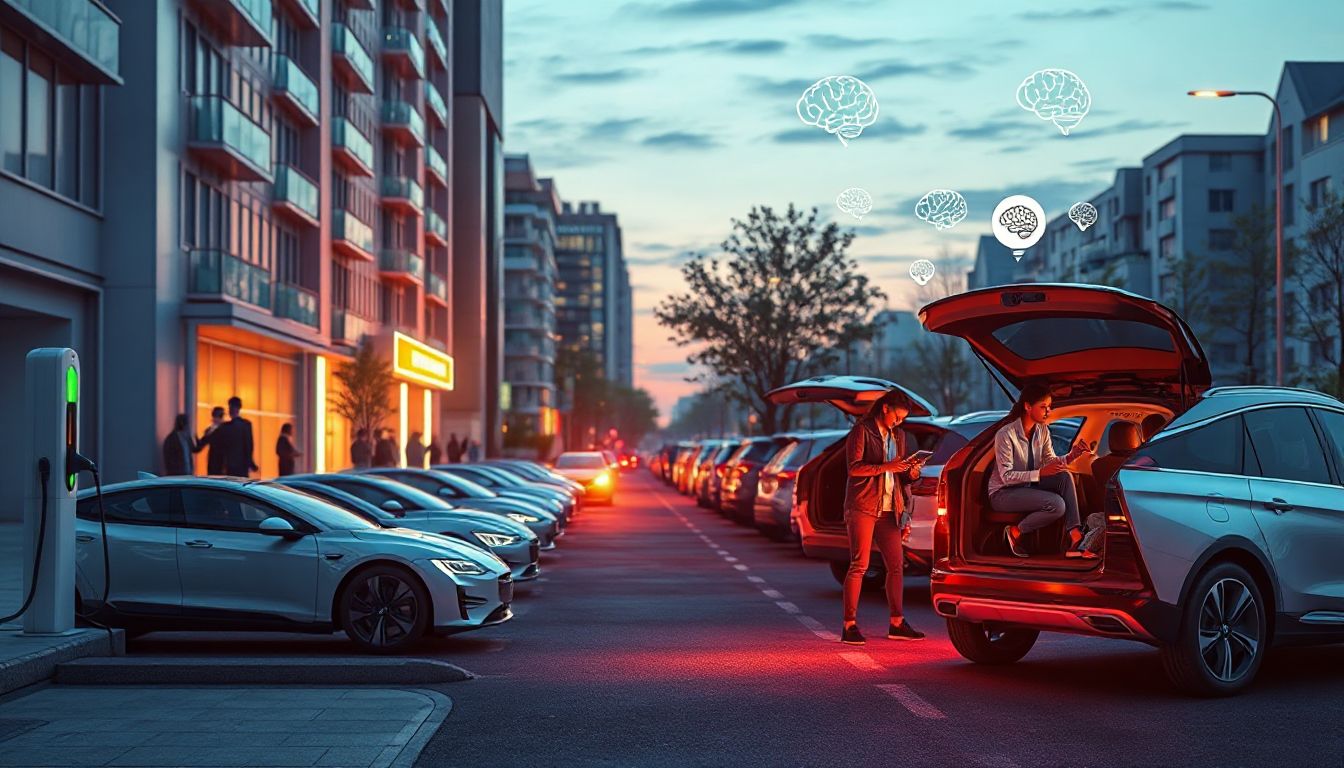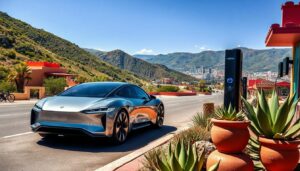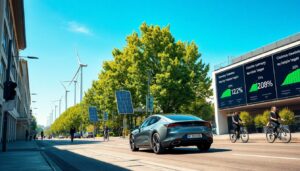Introduction
Electric vehicles (EVs) are no longer just futuristic concepts; they are changing the way we think about transportation—and our environment. They promise cleaner air, lower costs, and less dependence on fossil fuels. But just as important as technology is how people feel about driving and owning EVs. Psychology plays a big role in shaping what we think about these cars. Understanding the mindsets, fears, and social influences behind EV choices can help us build a better future for sustainable transport. It’s about more than the car itself—it’s about perception, habits, and attitudes.
The Psychological Drivers Behind Electric Vehicle Adoption
Understanding Consumer Attitudes Toward EVs
Many factors influence whether someone decides to buy an EV. People tend to care about the environment more today, which makes eco-friendly cars appealing. But acceptance isn’t only about saving the planet. It’s also about how comfortable someone feels with the technology and how much influence friends or family have.
Currently, EV adoption grows fast but still faces challenges. Some folks hesitate because they worry about how reliable the cars are or whether the idea fits with their identity. Their perceptions are shaped by personal values and social cues, which can either push or hold back adoption.
The Theory of Planned Behavior in EV Adoption
Psychologists often use the Theory of Planned Behavior to explain why people make choices. It says three key things matter most: attitudes, social norms, and perceived control.
- Attitudes: Do people think EVs are good or bad?
- Subjective norms: Are their friends or community driving EVs or encouraging it?
- Perceived behavioral control: Do they believe they can easily buy and use an EV?
Marketers and governments can use this insight to craft messages that boost positive attitudes and emphasize social support, making EVs seem like the smart choice.
Environmental Identity and Personal Values
Some people see themselves as big supporters of the planet. They make decisions that match their values. If you wear your eco-consciousness like a badge, buying an EV becomes part of your identity. These consumers are often motivated by a desire to be good stewards of the earth, which pushes them toward cleaner transportation options.
Psychological Barriers and Challenges to EV Acceptance
Range Anxiety and Fear of Technological Uncertainty
One major psychological barrier is “range anxiety”—the fear the car will run out of juice before reaching the destination. This fear makes potential buyers hesitant, especially in areas with fewer charging stations. To combat this, real-world stories and honest education about EV capabilities help people feel more secure. Showcasing how many miles most EVs can go and offering test drives make a difference.
Cognitive Dissonance and Status Quo Bias
Many people prefer what they already know. Switching from a traditional gas car to an EV can create mental discomfort, called cognitive dissonance. They might think, “Is an EV really as good?” Social proof, like seeing friends adopt EVs or government incentives, helps overcome this resistance. Making the switch easier and more appealing creates momentum.
Perceived Cost and Economic Uncertainty
Some worry about the higher upfront price of EVs or how long they will save money in the long run. Misconceptions about costs can be a barrier. Offering affordable financing, tax credits, and showing clear savings over time can help build consumer confidence. Making the financial aspect transparent encourages more people to consider EVs seriously.
The Impact of Psychological Factors on Policy and Marketing Strategies
Leveraging Social Influence and Normative Behaviors
People tend to follow what others do. When influential figures or communities endorse EVs, it shifts social norms. Campaigns featuring local leaders, celebrities, or peer testimonials can accelerate adoption. When people see neighbors or coworkers driving EVs, they’re more likely to try one themselves.
Framing and Messaging to Influence EV Perception
How we talk about EVs makes a big difference. Highlighting benefits like saving money and protecting the environment creates positive feelings. Similarly, addressing common concerns head-on reduces fear. Using vivid stories, powerful images, and relatable scenarios can make EVs more desirable and trustworthy.
Psychological Pricing and Incentives
Behavioral economics shows that small incentives can make a big difference. Subsidies, rebates, and discounts tap into consumers’ desire for immediate rewards. Framing these as limited-time offers or tying them to social benefits encourages faster decisions. Smart pricing strategies can turn curiosity into action.
Psychological Aspects of EV Ownership and Long-term Engagement
Identity and Self-Perception as an EV Owner
Owning an EV can boost a person’s self-image as someone who cares about the future. Many owners see themselves as environmentally responsible and modern. Community clubs and branding reinforce that identity, encouraging ongoing engagement and pride in the choice.
Habit Formation and Behavior Change
Getting used to an EV requires forming new habits—charging, maintenance, and driving differently. Psychological nudges, like reminders or community challenges, help solidify these routines. When sustainable behaviors become part of daily life, they stick.
Addressing Overconfidence and Future Anxiety
People often get excited about new tech but worry about how it will evolve. Overconfidence in current EV features can lead to disappointment later. Providing honest, real updates and future-proofing information helps manage expectations. Trust builds only when owners feel well-informed and supported.
Future Directions: Psychology-Informed Approaches to Accelerate EV Adoption
Incorporating Behavioral Insights into Policy Design
Simple nudges—like default options or choice architecture—can influence many decisions. For example, making EV charging stations as common as gas stations encourages usage. Policymakers can learn from these small adjustments to foster faster adoption.
Enhancing Public Education and Awareness Campaigns
Personalized messages resonate more. Knowing different groups’ motivations helps craft targeted campaigns—whether emphasizing family safety or savings. Social media, videos, and stories are powerful tools to reach wider audiences.
Promoting a Sustainable Mindset
Changing habits isn’t enough; fostering a long-term attitude toward sustainability is key. Community events, grassroots programs, and school initiatives help shape a mindset that values clean transportation. This cultural shift can drive future generations to embrace EVs.
Conclusion
Psychology shapes how people see, feel, and act about electric vehicles. From overcoming fears to building pride and community, understanding the mind unlocks new ways to encourage adoption. Combining insights from human behavior with smart policies and marketing can fast-track a clean, greener transportation future. Embracing these psychological factors is essential if we want everyone to join the EV movement and make lasting change.




